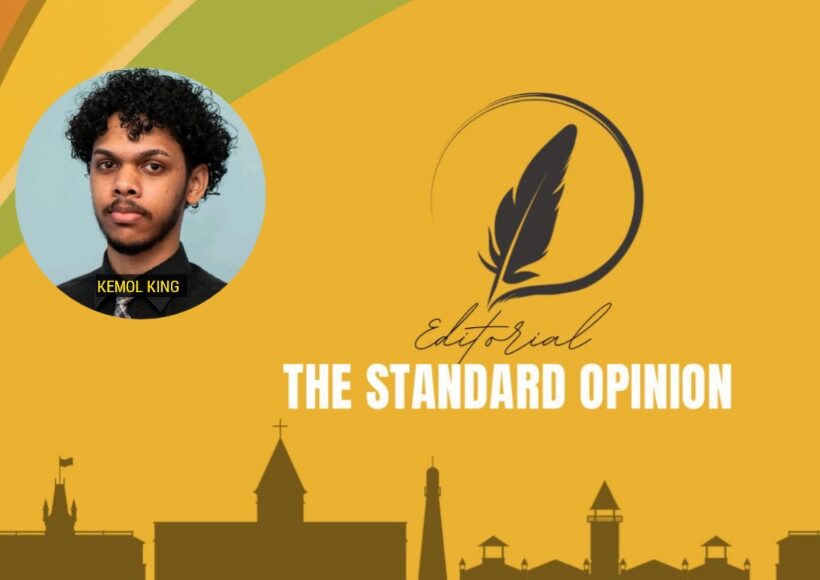By Kemol King
The debate over ExxonMobil’s 2016 Production Sharing Agreement (PSA) has long been a fault line in Guyana’s politics. Calls to renegotiate the deal have echoed from opposition platforms, civil society groups, and kitchen table debates alike, while the governing People’s Progressive Party Civic (PPP/C) has stood firm: no renegotiation, only better management of what exists.
Now, as Guyana moves toward the 2025 elections, a new party, Amanza Walton-Desir’s Forward Guyana, has signaled, through its manifesto, a position that is closer to the government’s than to that of its opposition rivals.
On the August 3 edition of Sources with Svetlana Marshall, Walton-Desir was asked directly about renegotiating Exxon’s contract. She responded first with a question: “How do we maximize the returns on what we’re getting now?” Then she went on to stress “management” as the critical issue. “Renegotiation is dependent on capacity. Who is negotiating this on our behalf? Jagdeo? And then, of course, there’s the issue of sanctity of contract. In my mind, the more critical issue is management.”
That framing could have come straight from a Bharrat Jagdeo press briefing. President Irfaan Ali’s government has consistently argued that Guyana must respect the sanctity of contracts, and instead manage contracts and the sector efficiently. This respect for contracts is a best practice internationally for governments that want to have constructive relationships with investors. The PPP’s line has been that management, through audits, regulatory strengthening, and local content, is where the real gains can be made.
When pressed, Walton-Desir added: “Eventually renegotiation will happen. That is the nature of business,” she said, though quickly cautioning that renegotiation “does not happen in a vacuum.” It was a carefully hedged remark: acknowledging the expectation from sections of the public that the deal must improve, without committing Forward Guyana to push for that improvement. This is where she differs from Jagdeo. This is not a talking point of his.
Forward Guyana’s manifesto, called ‘A CONTRACT WITH GUYANA’, states, “Uphold the sanctity of contracts previously signed, while working with our partners to ensure better outcomes and improve revenue-sharing models—securing a fairer share of natural wealth for Guyana.”
The manifesto states clearly that Forward Guyana supports upholding the sanctity of contracts. Taken together with her public comments, this places the party firmly in line with the government’s position.
It is a departure from the line taken by other opposition parties, which have pledged to pursue renegotiation. Two of those parties, A Partnership for National Unity (APNU) and Alliance for Change (AFC), were in government when this deal was signed, and vehemently rejected calls for renegotiation, only to later promise to fix it when they no longer had the power.
Importantly, APNU, AFC, and We Invest in Nationhood (WIN) have not argued for tearing up Exxon’s deal or unilaterally imposing new fiscal terms. None has openly called for disregarding the sanctity of contract. Instead, they speak of renegotiation, which could occur within the framework of the deal, a process that would necessarily involve Exxon’s consent under the stability clause. That clause requires all parties’ agreement for any change in terms, fiscal or otherwise.
What those opposition groups, like WIN, are promising, then, is to try. How feasible that effort would be is another matter entirely. Exxon has repeatedly signaled that it is unwilling to revisit the fiscal terms, and the clause gives it little incentive to do so. Why give away money? What’s the incentive?
So there you have it:
The PPP says renegotiation is not happening. Several opposition parties say they will pursue it. Forward Guyana says it will happen someday by… hopes, dreams, butterflies and magic? In substance, Forward Guyana’s manifesto ties it closer to the government than to its opposition rivals. In style, it tries to keep one foot in the renegotiation camp by suggesting that change is inevitable.
The stakes here are not abstract. Guyana earns a lot of money from oil produced from the Stabroek Block under the current contract. US$2.5 billion is expected for the government in 2025 alone. The 2016 deal has been criticized for granting Exxon and its partners generous terms. It includes a 2% royalty and 50% profit oil split after recovery of 75% of annual production, which some local commentators say leave Guyana shortchanged.
Whether those terms can, or should, be renegotiated has become a defining question in Guyana’s development story.
The inevitability of renegotiation, which seems to be Walton-Desir’s claim, is so vague that there’s no telling whether her being right would solve the problem claimed by critics of the contract. Six massive oil projects have already been approved with those terms. ExxonMobil has extracted more than 650 million barrels of crude offshore Guyana. The rate of production continues to increase. When does this inevitable renegotiation occur? How many barrels will it apply to? Walton-Desir hasn’t even said whether the current deal is fair. Maybe this issue is not on her front burner.













